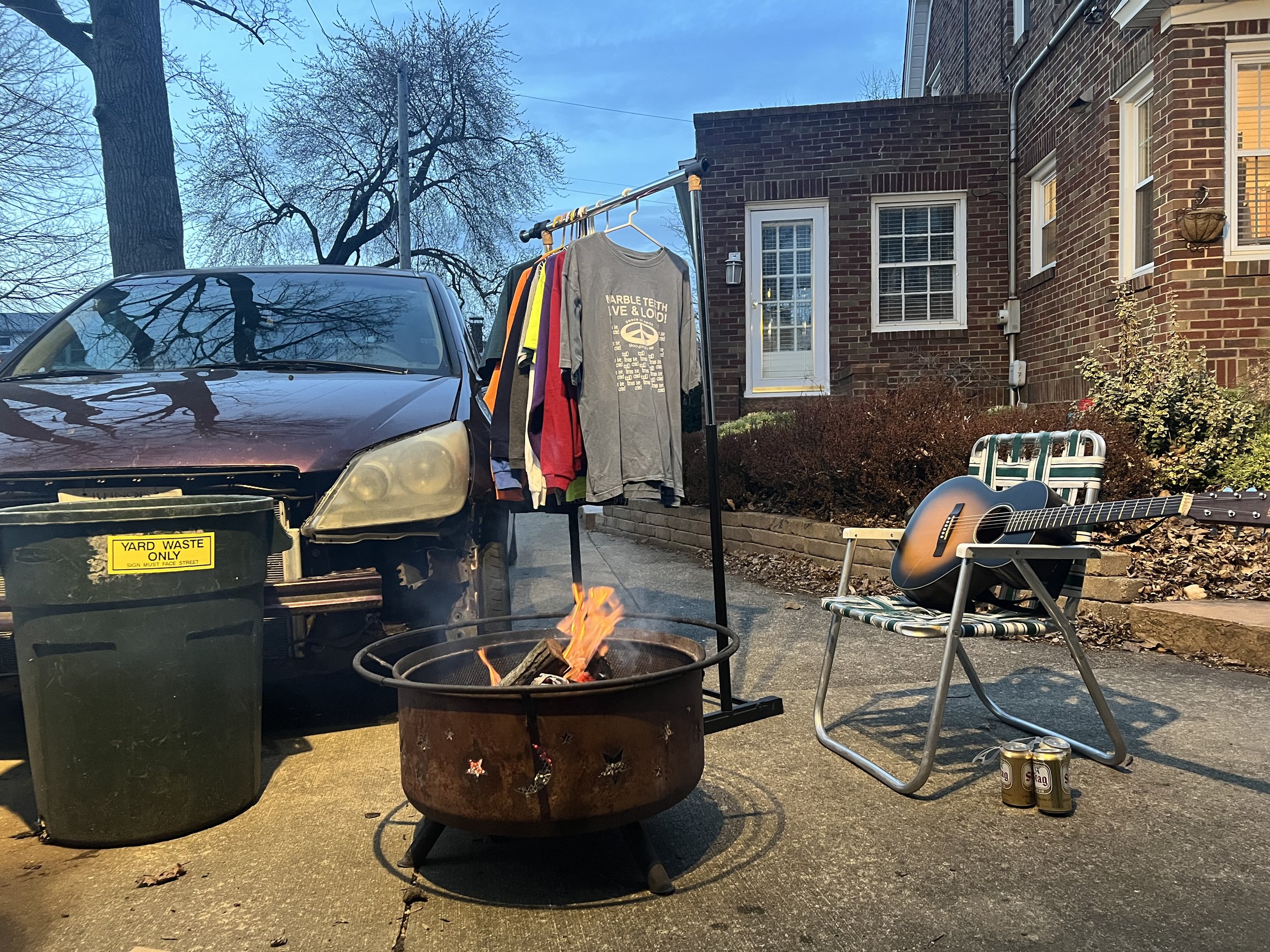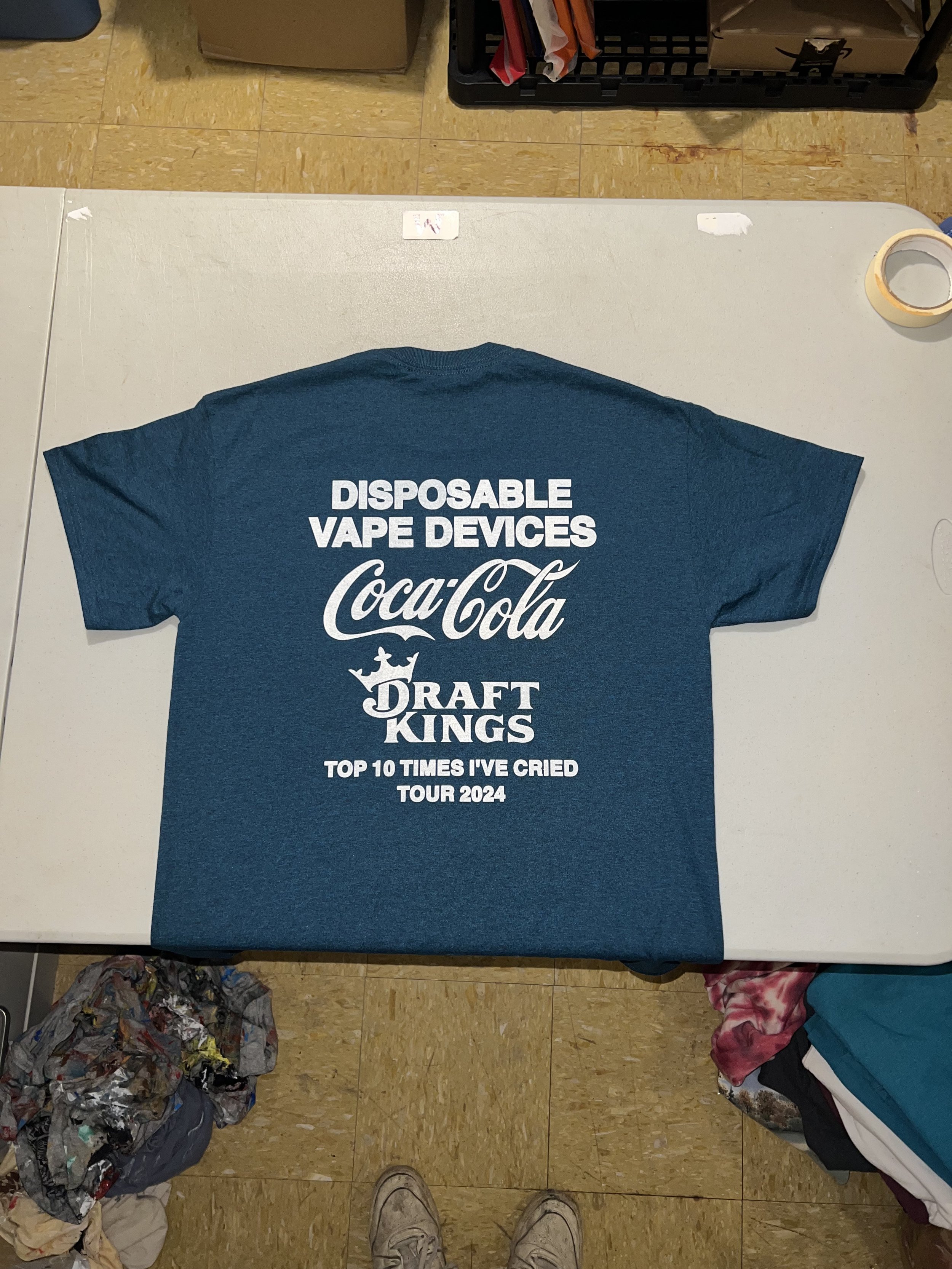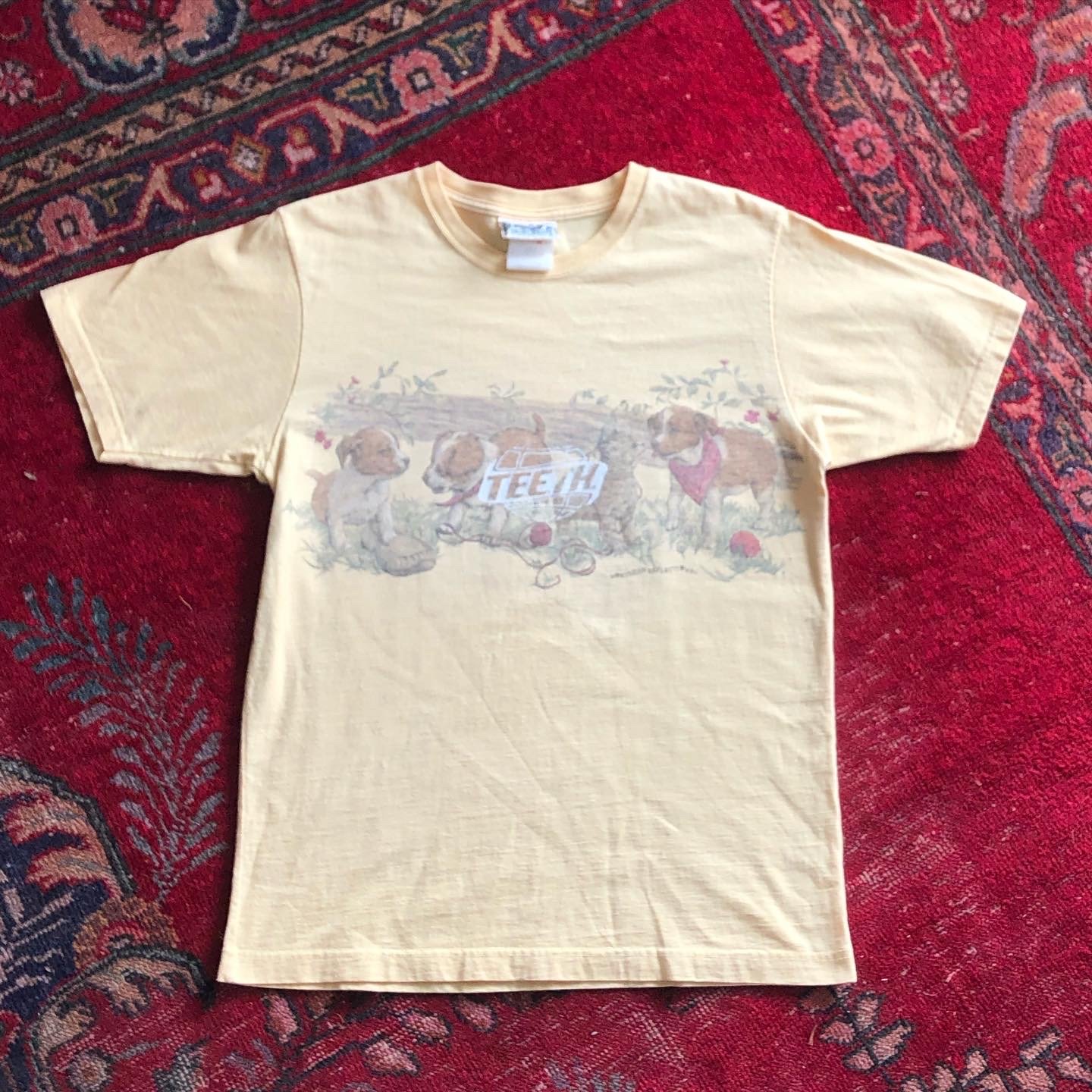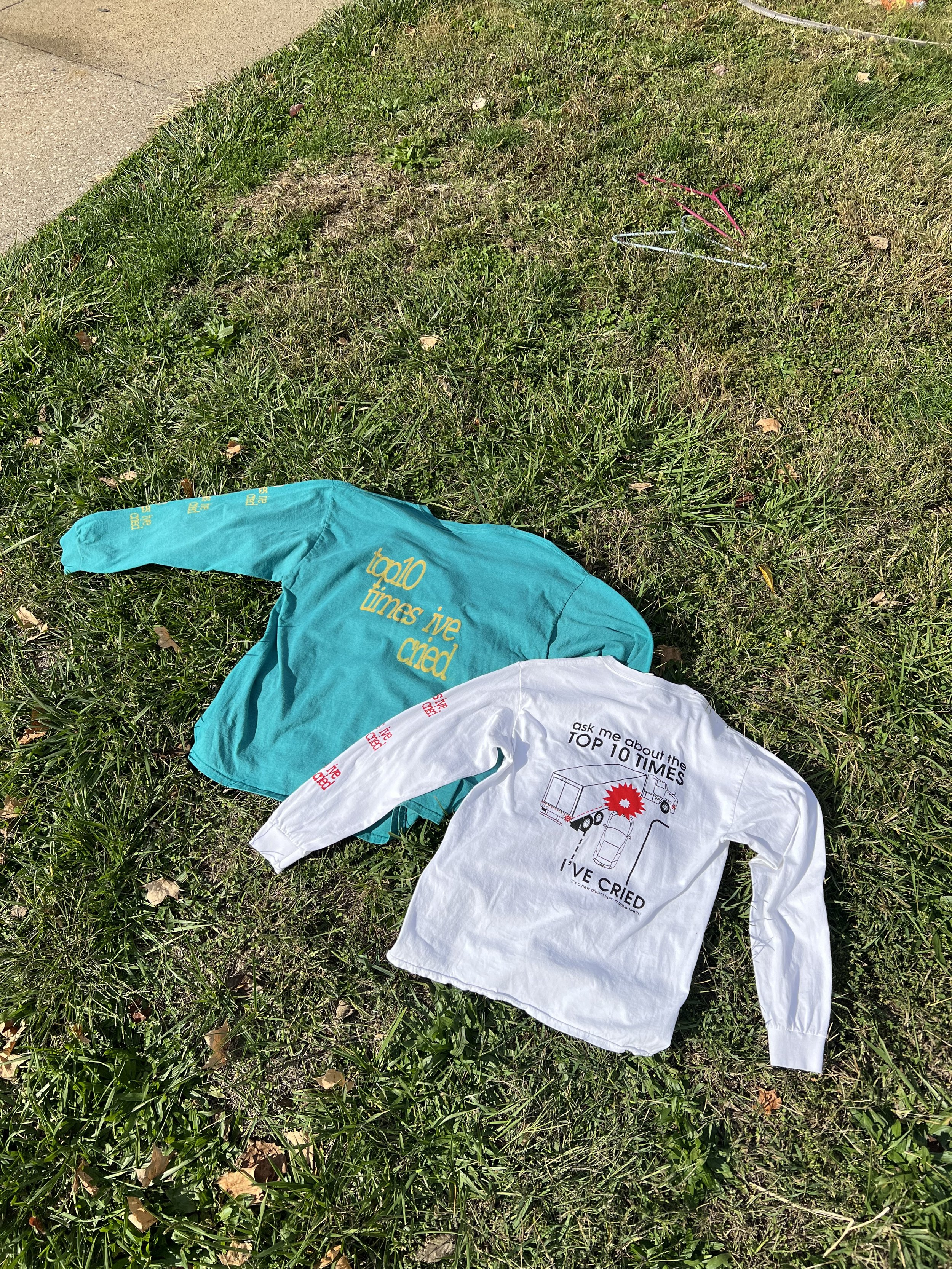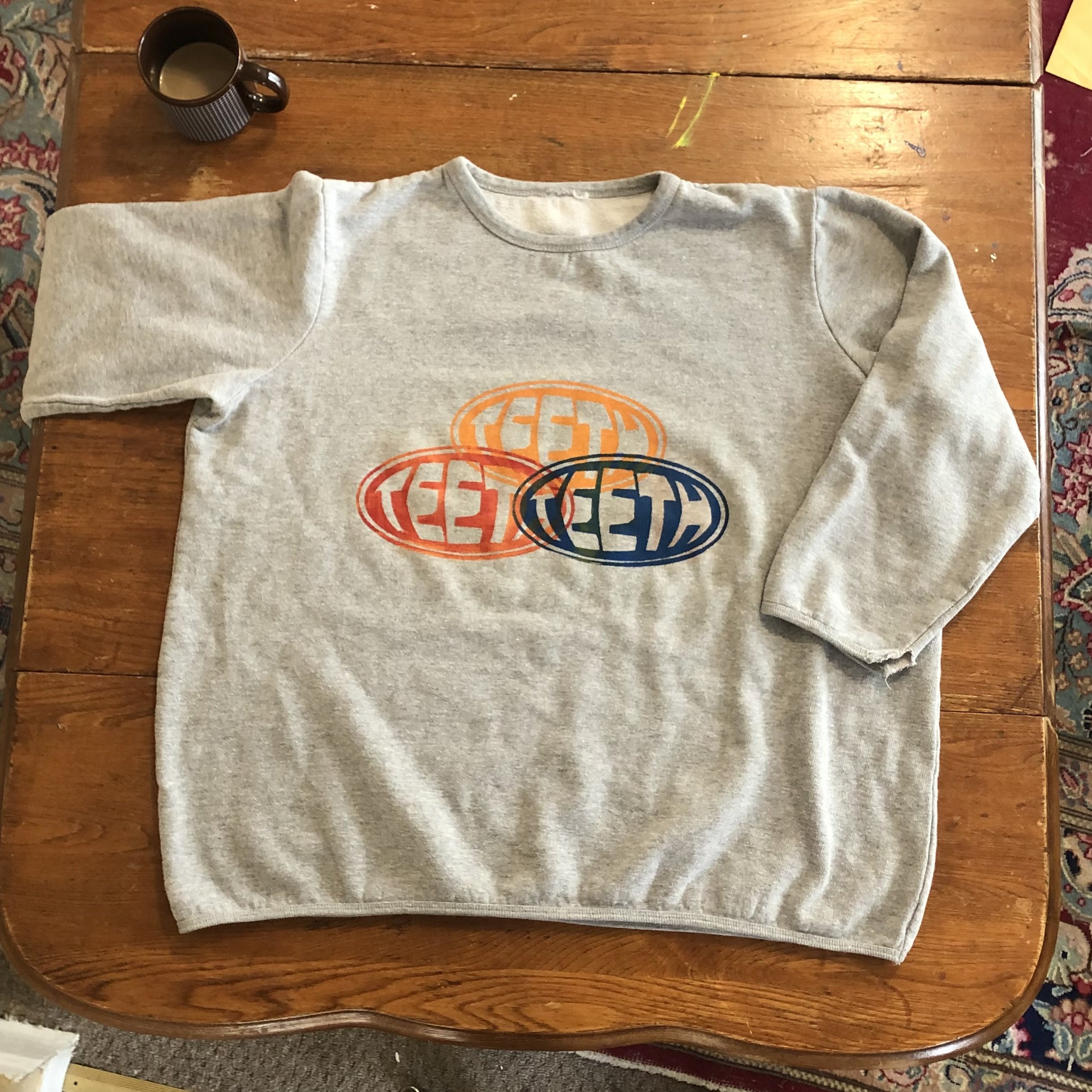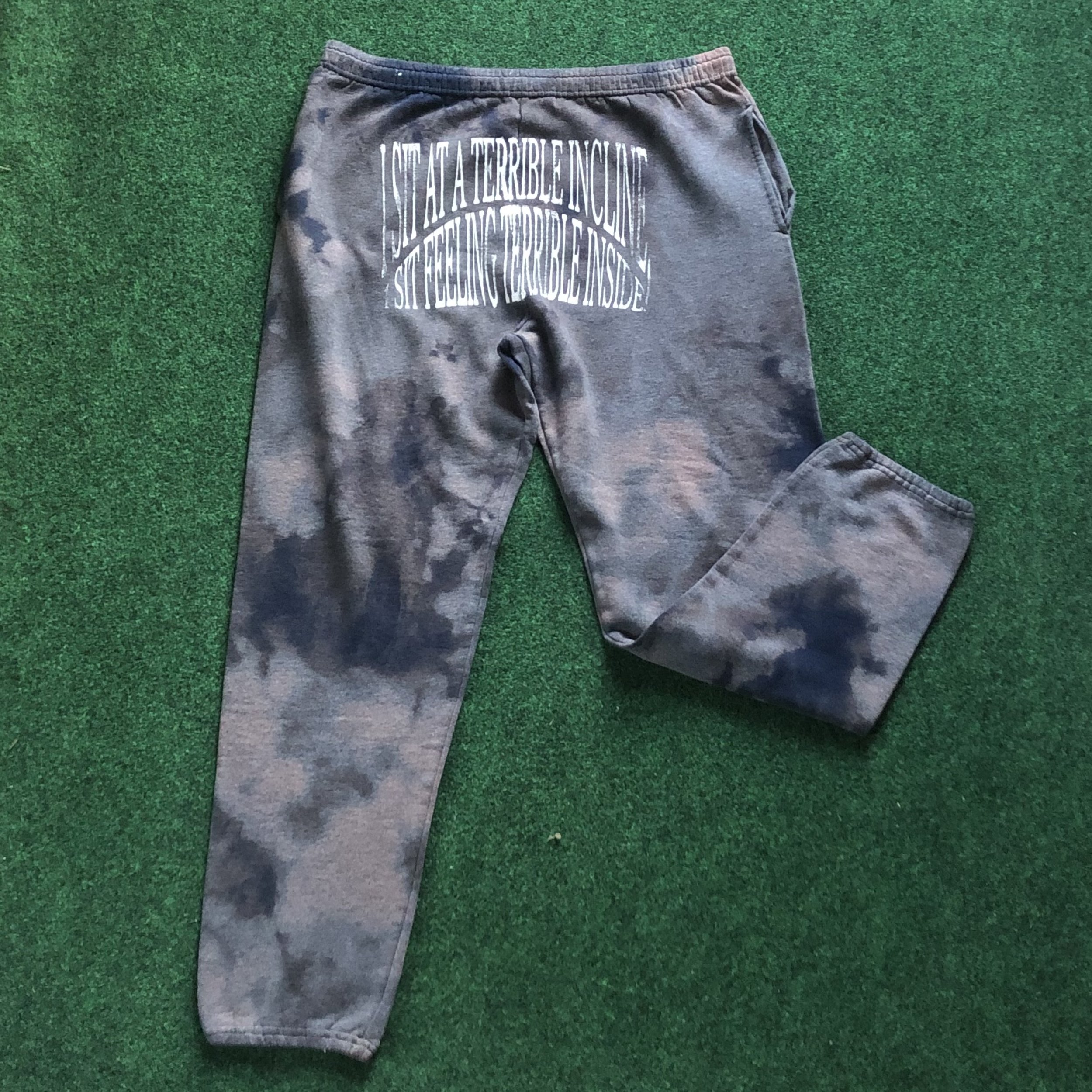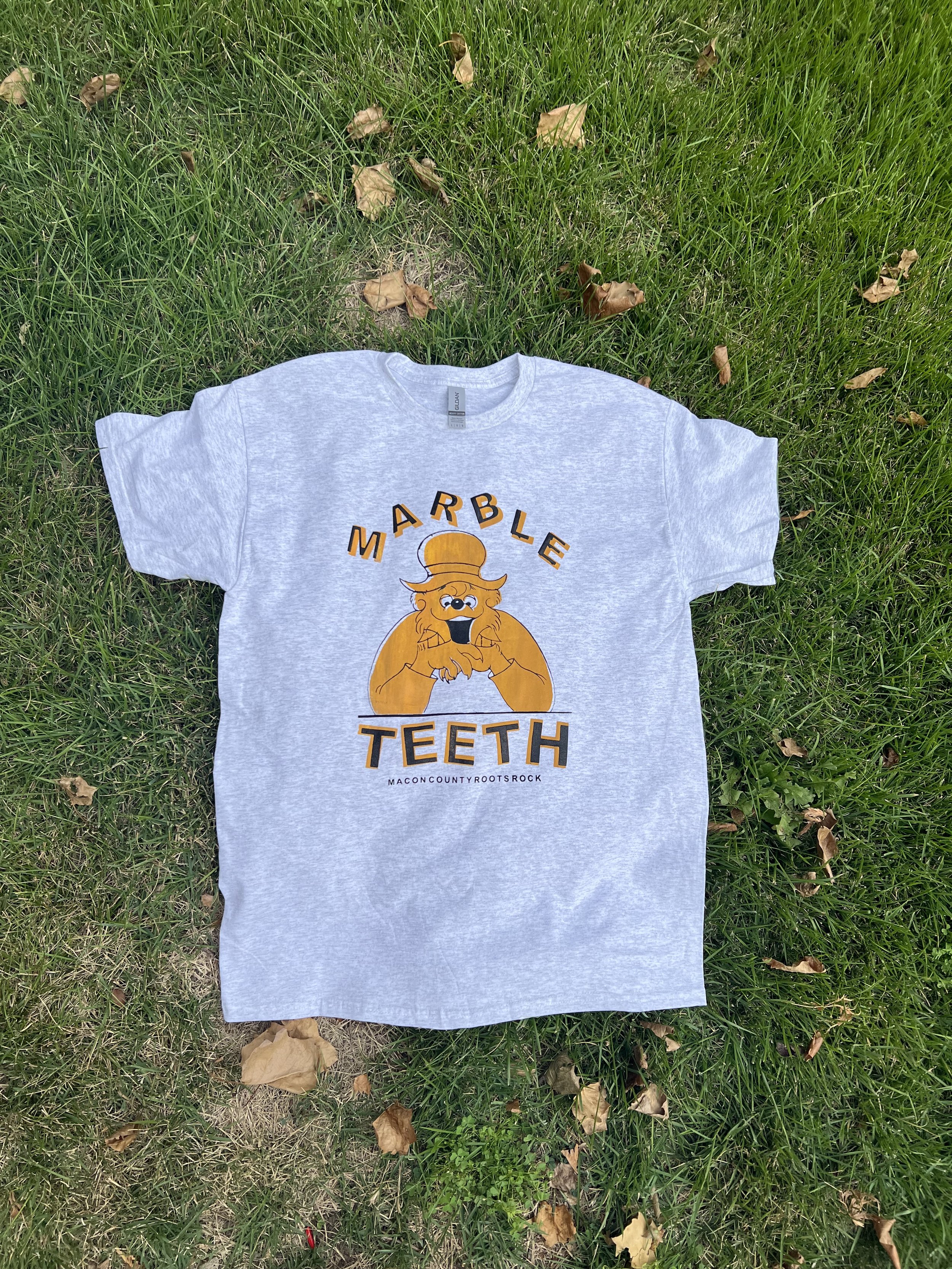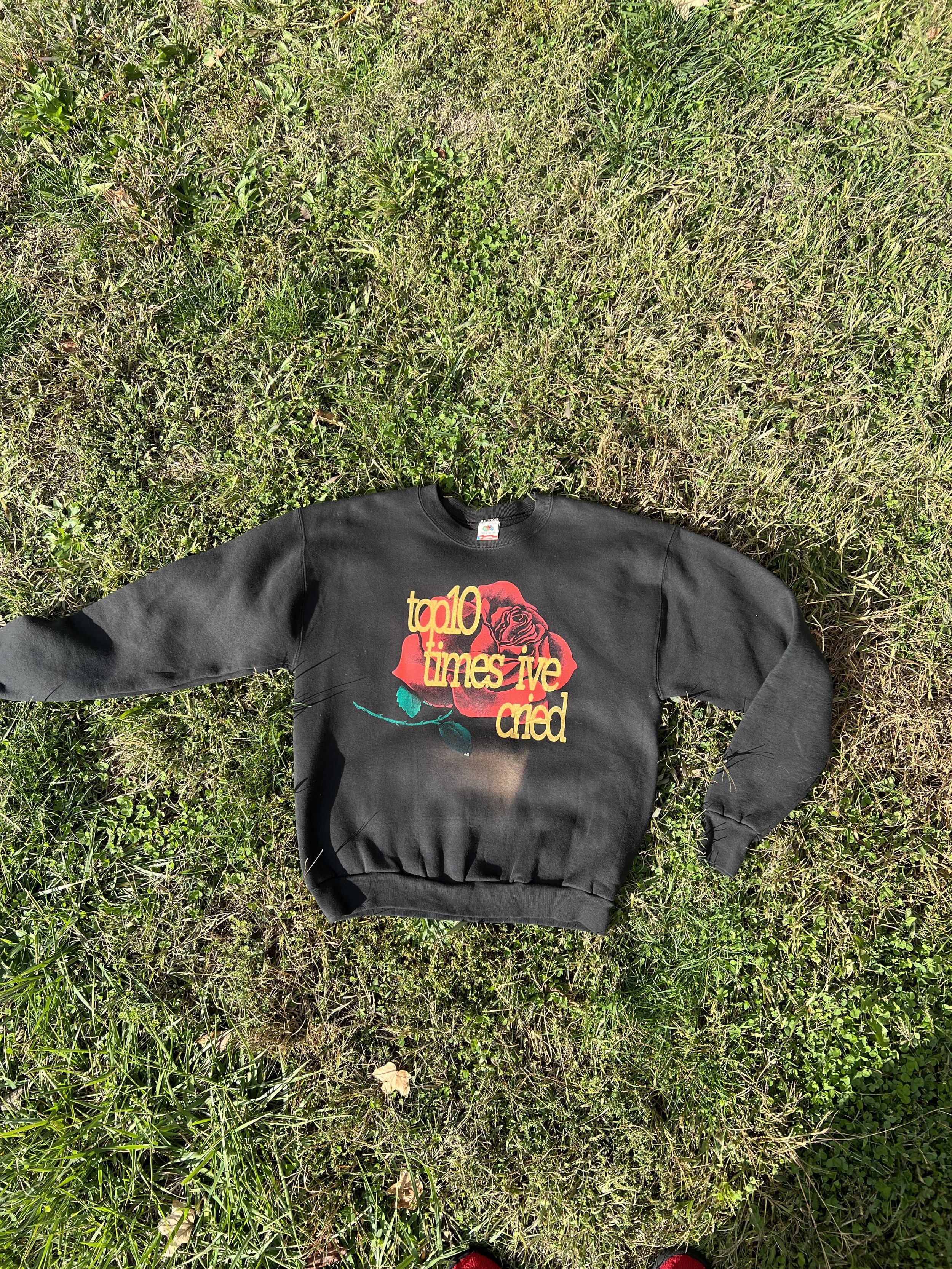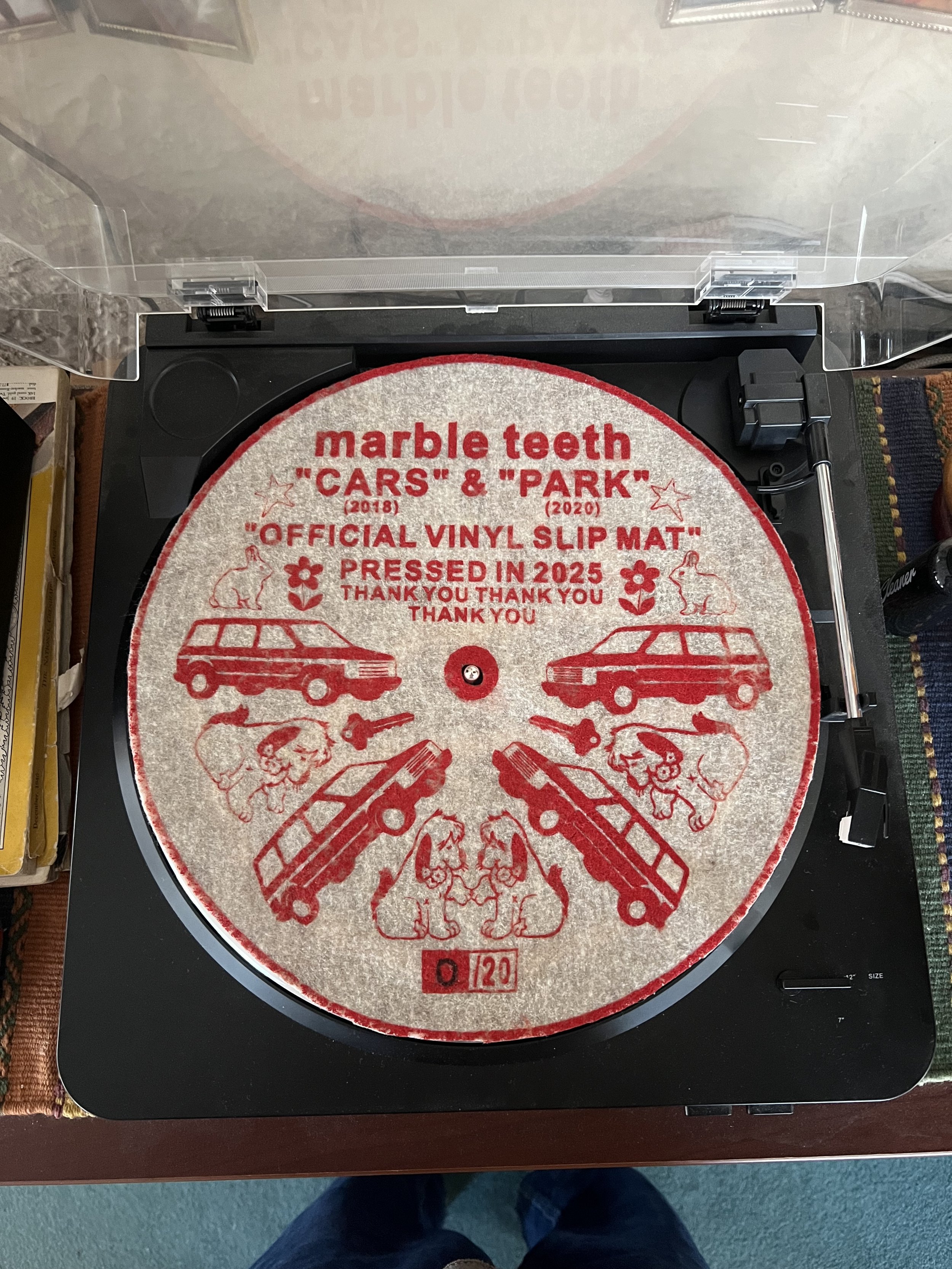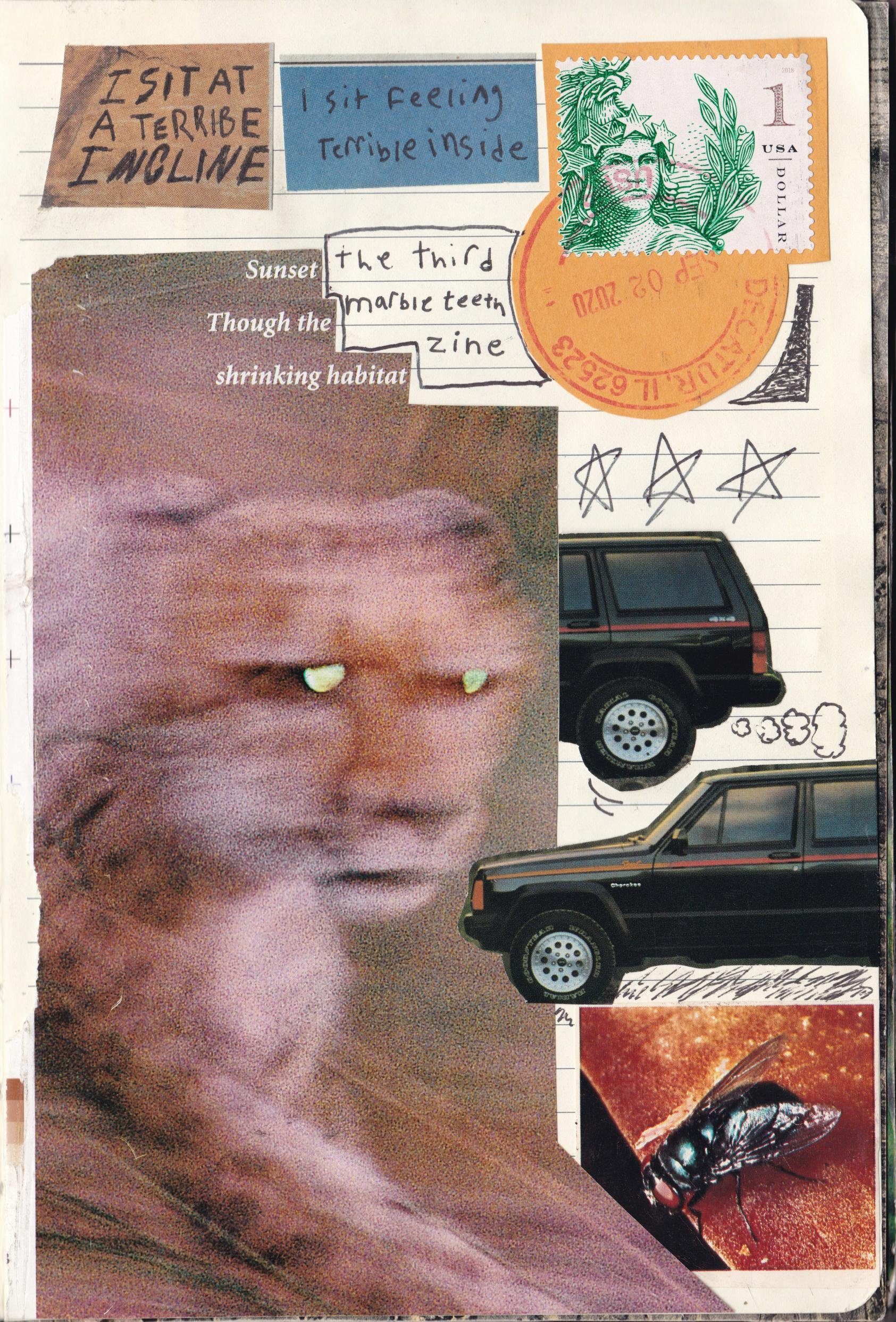Great Grandpa – Patience, Moonbeam | Album Review
/Run for Cover Records
Back in January, I told my partner that 2025 needed to be a year of deliberate change in our lives. We’d been living together for more than a year, and while we were comfortable, there was a complacency creeping in that neither of us were ready to accept. A string of events during the last quarter of 2024, ranging from personal reckonings with identity and loss to constant political anxiety, made me realize that something had to change, and our routines were all we had power over at that moment. I began applying to different day jobs again, they started making art in their free time, I rekindled my love for creative writing, and began the arduous process of teaching myself how to play the acoustic guitar that has been burning a hole in our wall. Now, even as many of our surroundings are the same, we are different.
If there’s one thing that Great Grandpa would know about, it’s metamorphosis. The Seattle five-piece began in the mid-2010s by playing the brand of grungy indie rock synonymous with their hometown, but their first two studio albums saw them gradually sanding the noise off their sound. What was uncovered was a dynamic band whose tastes spanned all of indie rock, with 2019’s excellent Four of Arrows running the gamut from fuzzed-out emo to misty-eyed folk, all tied together by Al Menne’s ever-expressive voice. Then the pandemic hit, and all of that was put in jeopardy. It was unclear if Great Grandpa would still exist as lockdown sent its members on diverging paths. After years spent apart and some beautiful solo records, the quintet came back together to record starting in 2023, with Menne plainly stating upon the release of lead single “Kid” last year: “Time passed, and I missed my friends.” Patience, Moonbeam sounds exactly like what it is – five people who love each other dearly, reconnecting and bonding for the first time in years. It’s a fun, unpredictable, and bold exchange of ideas that reflects the experience of each contributor.
There is a new sense of sharing the load that makes the record refreshingly light on its feet. While songwriting has always been a collaborative process for Great Grandpa, guitarist Pat Goodwin contributed the lion’s share of the lyrics on previous records, particularly Four of Arrows. Patience, Moonbeam, by comparison, features a few songs written entirely by Menne and drummer Cam LaFlam in addition to Goodwin’s own contributions, and it gives the songs a freewheeling feeling even as darkness looms in the background. Synthesizers, strings, banjo, and walls of electric guitar all play their role under the paradoxically cozy and adventurous alt-country umbrella that many of these songs fall under.
“Ladybug,” the first side’s playful high point, puts every bit of that spirit on display. Menne’s hook is warped by vocal effects and a thick synth lead before settling into a jangly jaunt full of winking pop culture references. It’s easy to imagine Menne beaming as he sings “Father of the ladybug, dressed like Donald Glover on the GQ cover” in the playful pre-chorus. Even in moments where it’s clear the band are having a blast, they’re never afraid to let their guard down. The levity of “Ladybug” sells the yearning in the bridge harder than straight-laced melancholy ever could, turning it into something of a thesis for Patience, Moonbeam. As everyone sings, “Semitones are the distance between lines / All I think about is you sometimes, all the time,” I can hear just how much these five friends missed making music together.
Immediately after, “Kiss the Dice” uses its brief runtime to send up the shifting perspectives that come with lived years. “I used to kiss the dice and roll / Now I’ve got a steady word,” hums Menne, relapsing into uncertainty as the outro fills out, “Do you think that that is worth something?” Even as he’s learned to take charge and lean into the changes life brings, that sting of anxiety never fully goes away. For as morose as their previous album could get, there’s a weariness to moments on Patience, Moonbeam that can only be the result of how much the five-piece has grown up over half a decade. The quiet strings in the intro of the opener, “Never Rest,” echo the nighttime air on the cover art, with the moon parting clouds as the song begins to evolve. First, the drums ground the dreamlike piece in a lush acoustic ballad before slowly erupting in an electric finish.
European treks and phone calls in the track’s lyrics make meaning feel elusive until Pat Goodwin’s own voice chimes in with Menne’s for the last line: “Coming son, the winter has its dark hum, how can I retain some sight?” The doubt hanging over the track stems from his and bassist Carrie’s new role as parents – after all, how good will your guidance be when you’re actively figuring this life thing out yourself? “Junior” picks up that thread, painting a scene of a family feud and troublemaking between farm boys. Pigs are maimed, dogs are shot, and “light crimes” are committed, all from a concerned but compassionate father’s perspective. Menne dips into his lower register many times throughout the album, but nowhere is it as striking as the way he embodies the titular Junior’s reckless antics in a distinct twang.
He went swinging with a young man’s wiles
I saw him twirling and punching wild
For all the wonder and wisdom Patience, Moonbeam offers in the first half, the most powerful revelations lie in side B. “Doom” acts as a sort of centerpiece, drip-feeding tech-induced anxiety with images both dystopian and apocalyptic. “Violent screens,” “cardboard meals,” and “stocks on a good deal” are contrasted with the thrills of connection as the band alternates time signatures in the verse and chorus. The record’s most cathartic release comes in the reprise of a hook from an earlier song, “Emma,” complete with a titanic riff that gives any other song in their catalog a run for its money. All the elaborate scenery is abandoned for the blunt, spit-out observation, “It’s funny how I need you, damn / It’s perfect when I leave you, damn.”
These twists and turns mimic life’s own trajectory. I said at the start that I was taking more action in my own life, and while it has been productive, it’s also quite difficult! For every little victory, there’s a backslide or regression - a moment of frustration with practicing guitar where you wonder if it’s even worth it, an exciting opportunity that disappears almost as quickly as it emerged – but this, too, is part of the process. Great Grandpa understand this all too well as Patience, Moonbeam ends with the single that ushered the band’s return, “Kid.” It’s a power ballad complete with heart-wrenching piano, a soaring guitar solo, and plenty of strings, but it’s the lyrics that drive everything home. Written in the aftermath of the loss of the Goodwins’ first pregnancy, mourning hangs over every inch of scenery, making the mirrored conclusions in each chorus come off as not just sincere, but genuinely life-affirming.
All good things in time define their meaning
And fold sweet ends into their mouths
All dark things in time define their meaning
And fold sharp ends into their mouths
Grief, growth, and change: these are not one-time events, but a constant process that we are always undergoing. We can choose to struggle against the ebb and flow and be lost, or look for patterns and ride the current to safer waters. In Great Grandpa’s case, they were lucky enough to be led back to one another. “Task,” a seemingly autobiographical tale of reunion and cooperation, sums that gift up perfectly. It opens on the line, “Saw you at the party we called you by your new name / You had changed, but the heart of you was still the same,” sweetly and succinctly supporting Menne’s gender transition before getting to the heart of the band’s bond. He sings about several “perfect kind(s) of song” before his bandmates join in for the outro of, “Won’t you tell me what my task is?” Sometimes, a little help from your friends is all you really need.
Wes Cochran is a Portland-based writer, worker, and music listener. You can find them @ohcompassion on Twitter, via their email electricalmess@gmail.com, or navelgazing their way up and down South Portland.























